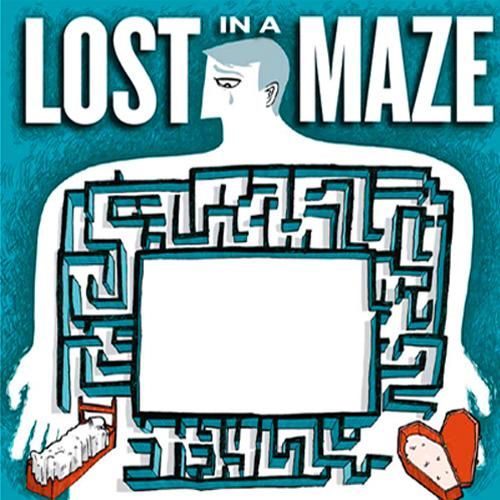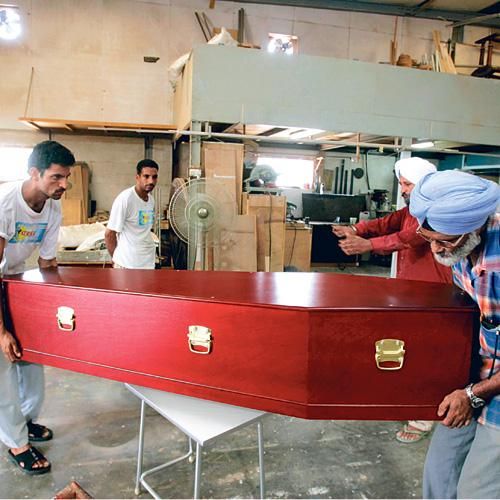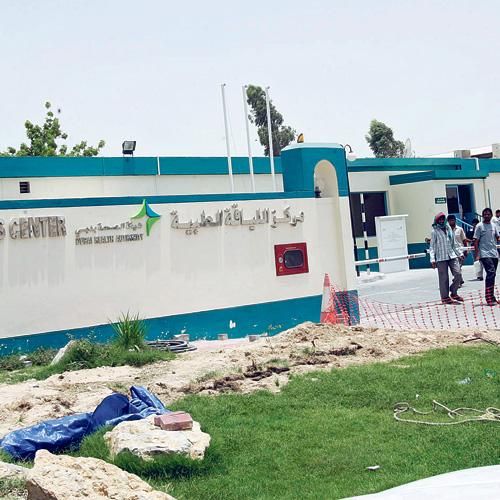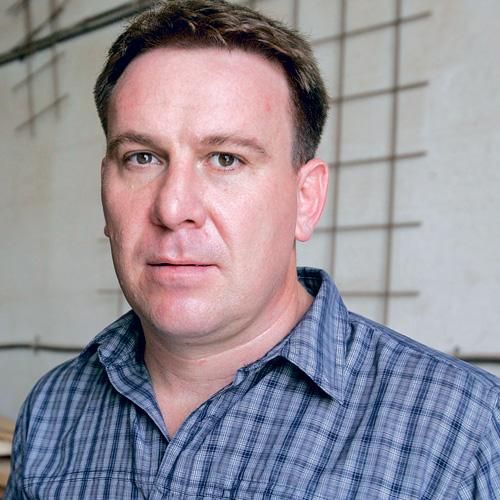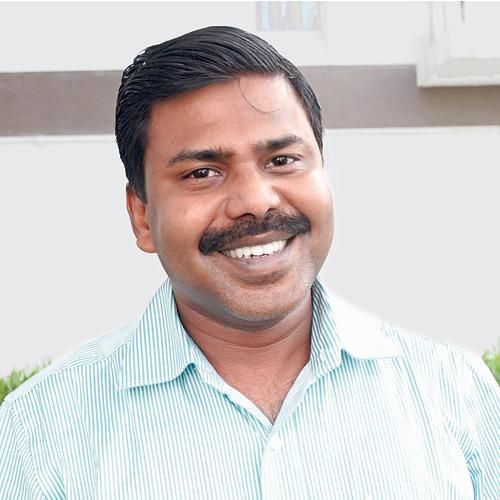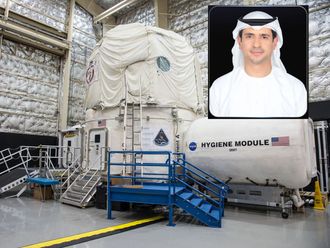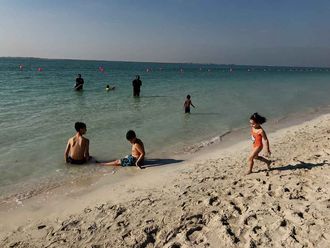Completing the documentation to bury, cremate or repatriate bodies of their loved ones can be painfully time-consuming and burdensome for bereaved families.
It's been four years since this Indian expatriate and his wife in Dubai lost their first child who was stillborn.
But the recollection is vivid.
The sudden shock of the death was bad enough, but the trauma that followed in getting clearances for the cremation of the little girl made things worse.
“I actually went online to get information. I found a phone number under ‘bereavement counselling', but there was no response when I called,'' the expat said.
“I then got in touch with an Emirati friend who took me to Al Qusais Police Station. There I was asked to get a declaration from Zulekha Hospital where my child died,'' he added.
The expat said that was just the beginning of a long list of formalities that he had to meet with whatever piecemeal information he collected at every step.
“When we realised that taking the body to India was a complicated process, we decided to cremate our daughter in Dubai itself. But we had no clue how to go about it,'' he added.
Finally, a parish priest at St Mary's Catholic Church in Dubai directed him to the Jebel Ali cremation ground.
“My wife, who was torn up inside, was at home all along and could not attend the funeral,'' the expat recalled, adding: “The body of my daughter was lying in Zulekha Hospital for three days before I could complete all the paperwork.''
For most bereaved families in the country, the process of completing the documentation to bury, cremate or repatriate bodies to their home countries can prove to be a logistical and emotional ordeal as the number of organisations they need to visit to complete the formalities leaves them with little time to mourn, sources said.
Even in cases of natural death, one needs to visit a host of entities, each at different locations, starting from the hospital, mortuary and local police station to the consulate/embassy, the Ministry of Health Preventive Medicine Department at Al Baraha Hospital, Deira, the Labour Department, the Medical Fitness Centre at Sonapur for embalming and, if the body is being repatriated, the airport and airlines.
Role of the police
While it could take anywhere between two and three days to get these clearances in a normal case, the process might be set back by many days, even months, if it is an accident or if the person dies under suspicious circumstances, in which case it would depend on the course of police investigations.
Most people go through the trauma on their own, turning to friends and sometimes non-governmental organisations. A few enlist the support of repatriation and funeral service companies who charge them a fee to take care of the process. But no matter what route is taken, the exercise remains long drawn-out.
“Every death becomes a police case and it can get tedious,'' said Vivian Albertyn, Managing Partner of Middle East Funeral Services (MEFS), a professional funeral service in the UAE that seeks to ease the burden of bereaved families at such times.
“Even the death of a person suffering from a terminal case of cancer has to be reported to the local police station,'' he said, adding that the jurisdiction of police stations where a death needs to be reported – usually where the residence of the deceased is – also creates much confusion.
According to a source, the family of a child who died at a private hospital in Dubai had to do the rounds of four police stations before they could report the death. In another case, sources said relatives of a resident of The Palm, who died of cancer at a private hospital in old Dubai, had a trying time meeting formalities after they reported the death to the concerned police station at Port Rashid, which until recently dealt with only deaths at sea.
Areas of concern
Pointing to other areas of concern, Albertyn regretted that only residents of Dubai could be cremated at the state-of-the-art cremation facility at Sonapur. This leaves people in other emirates with no option but to cremate bodies in the desert or repatriate them, he said.
Albertyn said though the embalming facility at Dubai was very good, cosmetic embalming facilities are still not available as in other parts of the world. Cosmetic embalming makes bodies more presentable with the required touch-ups being done. “We are trying to get an approval for privatisation of embalming services,'' he said.
But the procedures are more complicated in cases of deaths due to diseases like Aids. Valley of Love, a non-governmental organisation in Dubai, recently received a request from some Indian expatriates who wanted to know the procedures that had to be met to send the body of an HIV positive labourer to his home country.
Joseph Bobby, Vice-President of the NGO, said: “Since embalming of HIV patients is not undertaken, the body could not be flown out of Dubai. The labourer had to be cremated in Dubai itself, but only after the permission of his family in India was obtained.''
Valley of Love, which offered to get formalities completed, has helped out in 550 different cases of deaths over the past six years.
“While we understand that death procedures must be carefully done, the Dubai Government can have a single window for such clearances by having representatives from various departments all located at one place,'' said Bobby.
Albertyn felt that such a system may not work. “The various departments must put their heads together to see how best they can resolve this,'' he said.
Venu Rajamony, Consul General of India, told XPRESS that he had taken up the matter with the Dubai Police and former Minister of Health Humaid Mohammad Obaid Al Qutami. “They had assured me that they would look into the matter,'' he said.
“It would be ideal if we have a single window system of clearances as it is difficult to navigate through the current set of procedures,'' he said.
Comments from the Dubai Police and the Dubai Naturalisation and Residency Department to queries sent by XPRESS on whether the process can be simplified were not immediately available.
Foreign missions
Most embassies and consulates in the country give a step-by-step outline on what to do and whom to contact in case of a death. Nonetheless, it's a maze with the mobility and finance that is required, making it more burdensome.
Many of the steps involve a certain fee, with the cost of repatriating a body to a European country going up to Dh20,000. Funeral service companies like MEFS charge around Dh25,000 to take care of the entire process, should the body be sent to Europe.
Closer home too, the process can be taxing as was the case with a Dubai girl who died after falling into Omani territory during a hiking trip to the Hajjar mountains last year. Sources said the family had a trying time getting the documentation in place before the body could be brought from the mortuary at Muscat.
The trauma deepens if it's a death under suspicious circumstances in which case police investigations take their own course. The court and prosecution too may come into the picture, delaying matters for bereaved families.
It might be a long wait while the bodies remain at the mortuary. An official at a mortuary, who requested anonymity, said: “There are formalities to be completed. We do allow families and authorised persons to visit the mortuary if they want to.''
Meanwhile, a Dubai-based family, one of whose members died under suspicious circumstances recently, said one could not rush matters in such cases as investigations need time.
The family, which received the body more than a week after the death, said: “If the body had been returned to us in two or three days, the investigations would have been affected.''


